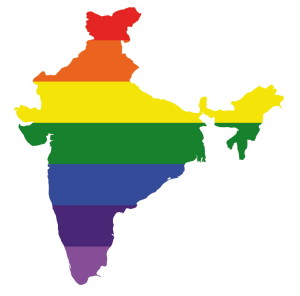
Disappointed Gay Dad Asks Supreme Court to Overturn Brooke S.B., aKey New York LGBT Family Law Precedent
In Brooke S.B. v. Elizabeth A.C.C., 61 N.E.3d 488 (2016), the New York Court of Appeals overruled a 25-year-old precedent and held that when there is clear and convincing evidence that a same-sex couple agreed to have a child and raise the child together, where only one of them will be the child’s biological parent, and both of the parties performed parental duties and bonded with the children, the other parent would have the same rights as the biological parent in a later custody dispute.
Now a gay biological dad who lost custody of twins to his former same-sex partner by application of the Brooke S.B. precedent asked the U.S. Supreme Court on May 10 to rule that his 14th Amendment Due Process rights have been violated. Frank G. v. Joseph P. & Renee P.F., No. 18–1431 (Filed May 10, 2019); Renee P.F. v. Frank G., 79 N.Y.S.3d 45 (App. Div., 2nd Dep’t, May 30, 2018), leave to appeal denied, 32 N.Y.3d 910 (N.Y.C.A., Dec. 11, 2018).
Frank G. and Joseph P. lived together in a same-sex relationship in New York and made a joint decision to have a child. Joseph P.’s sister, Renee, had previously volunteered to be a surrogate for her gay brother, both donating her eggs and bearing the resulting child or children. Renee became pregnant through assisted reproductive technology using Frank’s sperm. The three entered into a written agreement under which Renee would surrender parental rights but would be involved with the resulting child or children as their aunt.
After the twins were born, both men participated in parenting duties. Joseph sought to adopt the twins under New York’s second-parent adoption rules, and he remembered completing paperwork that Frank was supposed to complete and submit, but that never happened. The men were not sexually exclusive and eventually arguments about Frank’s sexual activities led to Joseph moving out. He continued to have regular contact with the children until Frank suddenly cut off contact after another argument. Frank subsequently moved with the children to Florida in December 2014. Frank did not notify Joseph or Renee of that move. When they found out, Joseph filed a guardianship petition. (Under New York precedents at the time, he did not have standing to file a custody petition.)
As lower court rulings were questioning the old New York precedent, Joseph withdrew his guardianship petition and both he and Renee filed custody petitions. Renee clearly had standing to seek custody as the biological mother who had remained in contact with the children.
Frank moved to dismiss the custody lawsuit, but the trial judge, Orange County Family Court Judge Lori Currier Woods, rejected the motion, holding that both Joseph and Renee had standing to seek custody and ordering temporary visitation rights for Joseph and Renee while the case was proceeding. Frank appealed to the Appellate Division, 2nd Department. While his appeal was pending, the Court of Appeals decided Brooke S.B.. Applying that case, the Appellate Division affirmed the trial court’s standing decision in favor of Joseph and Renee and returned the case to Judge Woods.
After a lengthy trial, which the trial court’s unpublished opinion (reprinted in the Appendix to the cert petition) summarizes in detail, the trial court awarded custody to Joseph, with visitation rights for Frank. Frank appealed again. The Appellate Division affirmed the trial court’s order. Frank unsuccessfully sought review by the New York Court of Appeals.
Frank is represented on the Supreme Court petition by Gene C. Schaerr of the Washington, D.C. firm of Schaerr/Jaffe LLP. Schaerr, a Federalist Society stalwart and a Mormon from Utah, where he graduated from Brigham Young University’s Law School, was prominently involved in the marriage equality battle, representing the state of Utah in defending its ban on same-sex in federal court, and he submitted an amicus brief to the Supreme Court in Obergefell v. Hodges on behalf of conservative legal scholars who argued that allowing same-sex marriage would be harmful to the institution of marriage, presenting social statistics from Europe purporting to show that the adoption of same-sex marriage in some countries caused rates of heterosexual marriage to fall. Social scientists have contended that the downward trend in marriage rates in Europe was well under way long before the countries in question extended legal recognition to same-sex relationships, and causation was not shown. In other words, Schaerr is an anti-LGBT cause lawyer, and the slanting of facts recited in the Petition for Frank as compared to the detailed fact findings summarized in the trial court’s unpublished opinion, which is appended to the cert Petition, is striking.
Family law is primarily a matter of state law, but the U.S. Supreme Court occasionally gets involved in family law disputes that raise constitutional issues. Since early in the 20th century, the Supreme Court has ruled that a legal parent of a child has constitutional rights, derived from the Due Process Clause, relating to custody and childrearing. The Petition argues that the rule adopted by the New York Court of Appeals and the appellate courts of some other states, recognizing parental status for purposes of custody disputes between unmarried same-sex partners, improperly abridges the Due Process rights of the biological parents.
Some state courts have issued decisions similar to Brooke S.B., while others have refused to recognize standing for unmarried same-sex partners to seek custody. There is definitely a split of authority on the issue, but it is not necessarily the kind of split that would induce the Supreme Court to take a case. The Supreme Court is most concerned with variant interpretations of federal statutes or of the U.S. Constitution, but the state court cases addressing the issue of same-sex partner standing have generally not discussed constitutional issues and have reached their conclusions as an interpretation of their state custody statutes. Although it is true that same-sex partner parental rights vary as between different states, this does not necessary create the kind of patchwork as to federal rights upon which the Court would focus.
TheMedium.com, by Art Leonard, July 12, 2019
Click here overturn Brooke S.B. to read the entire article.
The post Disappointed Gay Dad Asks Supreme Court to Overturn Key New York LGBT Family Law Precedent, Brooke S.B. appeared first on Time For Families.
Source: Time for Families
Australian citizen Kristina Palma, who married Mariama Dialo of France in 2016, was initially permitted to live, work and travel in Bulgaria and the European Union on the grounds that she married an EU citizen. But Bulgaria later denied her those rights, arguing that same-sex marriage was not legal in the country.












